

|
 |
Very Best of The Comedians, Series 3 (The)
R2 - United Kingdom - Network Review written by and copyright: Paul Lewis (24th April 2009). |
|
The Show
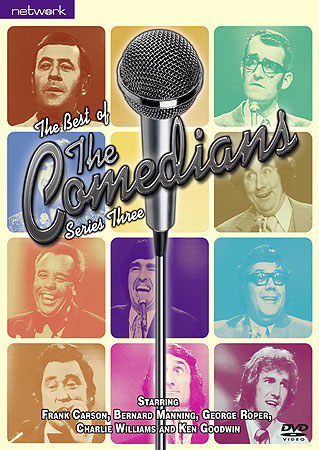 The Very Best of ‘The Comedians’, Series 3 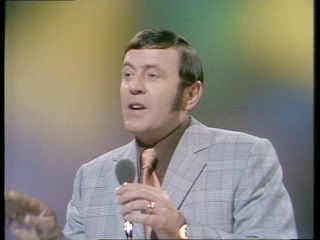
Notoriously un-PC, The Comedians (1971-92) was produced for Granada Television and ran for several series in the 1970s before being revived briefly during the mid/late-1980s. The show was devised as a vehicle for stand-up comedians from the then-burgeoning working men’s club circuit, who would deliver their jokes to-camera in front of a live studio audience. Representing the first attempt to capture the spirit of pub and club comedy for a television audience (see Littlewood & Pickering, 1998: 297), The Comedians paved the way for current shows such as the BBC’s Live at the Apollo (2004- ). In his book Looking North: Northern England and the National Imagination (2004), Dave Russell argues that The Comedians ‘did much to cement the notion of the “club” as a core institution of northern comedy’ (196), an aspect of popular culture that is now firmly embedded to such an extent that Peter Kay’s situation comedy Phoenix Nights (Channel 4, 2001-2) could quite comfortably deconstruct it for a mainstream television audience. (However, as early as 1975 the life of a northern club comic provided dramatic material for Trevor Griffith’s play Comedians, televised as part of the BBC’s Play For Today strand in 1979; see Tulloch, 2006: 144.) 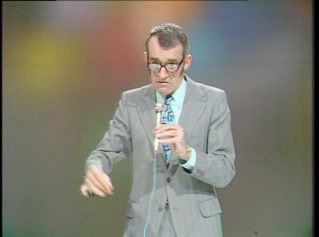
The Comedians raised the profile of many of its stars, who until appearing on the show had been ‘relatively unknown on a national level’ (Russell, 2004: 196). However, Dave Russell concedes that despite its considerable popularity, the series ‘alienated many and gave a less than positive image of the region it emanated from. In particular, though not always as offensive as sometimes painted by the practitioners and fans of the “alternative comedy” that grew up in conscious opposition in the 1980s, some performers [such as Bernard Manning] used a high quotient of jokes about the Irish, Pakistanis and Jews and physical disability’ (196). The show features those old staples of club comedy, the classic jokes about ‘the wife’ and mothers-in-law: ‘What a face! When she puts her lipstick on, it backs away down the tube’; ‘My father-in-law breeds pigs… I married one of ‘em’. Many of the jokes conform to the stereotypes of working men’s club comics: ‘And then this woman went to the doctor, and she was a good woman, and she said, “Doctor, my husband beats me every night”. He said, “Well, try playing summat you’re good at”’. 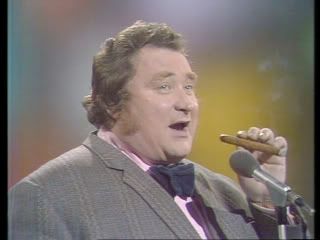
Bernard Manning contributes some typically controversial material of the kind that led to the reaction against the club comics during the 1980s. On the other hand, some of the jokes poke fun at the more parochial aspects of British politics. Still a controversial figure within black British comedy for his self-deprecating race-oriented humour (despite being awarded a lifetime achievement award at the Black Comedy Awards in 2000), during one skit the late Charlie Williams satirises the then-relatively new Race Relations Board: ‘This Race Relations Board, it’s a wonderful scheme that. You know, I’d have been on that if I hadn’t have been coloured… but it’s a good scheme. My mate wanted to be on that Race Relations Board, and he went to Enoch [Powell] and said, “I’d like to be on the board, like”; so he made him walk the plank’. 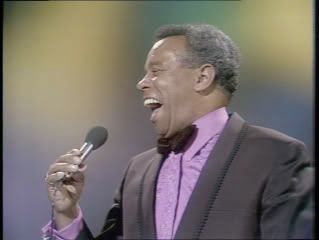
The comedians aren’t introduced. Some of them, such as Frank Carson, Bernard Manning, Charlie Williams and Mike Reid are still immediately recognisable; others, such as Russ Abbott, went on to bigger things during the late 1970s and 1980s. There are some hysterically funny gags and others that are not so funny; but as this is a compilation DVD, with most of the ‘flab’ of the third series presumably edited out, the hit-to-miss ratio is pretty strong. 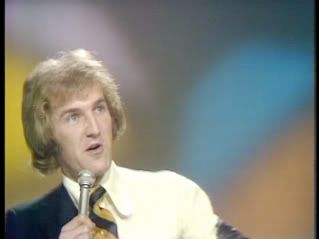
This compilation of clips from the third series of The Comedians runs for 83:57 (PAL).
Video
Shot on video in a harshly-lit studio environment, The Comedians looks about as good as it should do. It is presented in its original broadcast screen ratio of 1.33:1. 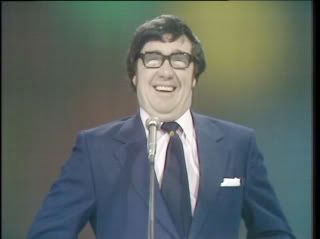
Audio
The DVD contains a perfectly serviceable two-channel mono track. There are no subtitles.
Extras
Included as an extra is ‘The Comedians Christmas Party, 1971’ (38:04). This ‘Christmas Special’ contains some good gags and is a commendable addition to the disc.
Overall
For a long time, this type of club comedy was out of fashion, thanks in part to the rise of the ‘alternative’ comedy scene during the 1980s, which was a reaction against the club comics. However, recent years have seen a revival of club-format television shows (such as the aforementioned Live at the Apollo), the postmodern recuperation of non-PC humour on mainstream television (in the form of the BBC’s Life on Mars, 2006-7, and Ashes to Ashes, 2008- ), a self-consciously ironic deconstruction of jokes about issues such as race and cultural difference (via comics such as Omid Djalili), the retrenchment of some of the alternative comedians into the club circuit (for example, Lenny Henry) and a revival of interest in the culture of club comedy, spearheaded by Peter Kay’s stand-up and his sitcom Phoenix Nights. In this context, the culture of club comedy that is presented in The Comedians seems less dated (and more relevant) now than it did in the 1980s and 1990s, when the ‘Young Turks’ of alternative comedy were actively deriding the work of the club comics. References: Littlewood, Jane & Pickering, Michael, 1998: ‘Heard the One About the White Middle-Class Heterosexual Father-in-Law?: Gender, ethnicity and political correctness in comedy’. In: Wagg, Stephen (ed), 1998: Because I Tell a Joke Or Two: Comedy, Politics and Social Difference. London: Routledge: 291-312 Russell, Dave, 2004: Looking North: Northern England and the National Imagination. Manchester University Press Tulloch, John, 2006: Trevor Griffiths. Manchester University Press For more information, please visit the homepage of Network DVD.
|
|||||

|